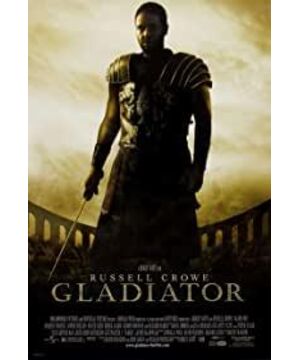Text/Harry Sidbotham
About the author: Dr. Harry Sidbotham, Lecturer in Ancient History at Lincoln College, University of Oxford, and Part-time Lecturer in Classics and Ancient History at the University of Warwick. He has published many papers in academic journals and works such as "Classical Quarterly", "Journal of Roman Studies" and "War and Society in the Roman World".
The movie "Gladiator" opens with a large-scale battle in the Germanic forest. On one side are Romans, lined up in a neat formation, with uniform equipment. They waited quietly under the gaze of everyone, planning to use their relatively advanced weapons to fight. Their slogan is "strength and honor." When the order was issued level by level, they fired their weapons at the same time and moved forward neatly. They helped each other in battle and were brave and fearless. The other side is a barbarian. They are not in formation, dressed in animal skins, and in different costumes. Some people carried stolen Roman shields, but they lacked slings-equipment that represented the top military technology of the time. At the beginning, their team was hidden in the woods, and the soldiers' shouts were noisy and chaotic, unrecognizable. The only difference in status is shown several times in close-up shots of a particularly tall, strong, thick-haired samurai. They entered the battlefield like a mob, and everyone fought violently.
One side represents civilization, and the other represents barbarism. The Romans fought the so-called "Western-style war" in the film. The goal was an open decisive battle, and ultimately won by bravery. To a certain extent, the bravery in the war originated from strict discipline.
What the Germans fought was a bit like a "sneaky" war. Their intention is to ambush, fight without discipline, and rely solely on bravery. When watching such a battle, we feel that it seems to be "real" because it looks so "natural and realistic." However, it is not "realistic". "Western-style wars" and "non-Western-style wars" are the products of cultural construction. So we can't help asking: Where did this concept of Western-style war originate? Why is it constructed? Why will it continue?
"The lack of change in the Asian climate, the absence of extreme weather such as severe cold and scorching heat, has caused the spiritual weakness and cowardice of the Asian people."
The Hippo War finally firmly established the concept of "Western-style war". The Greeks fought for freedom. They sought open battles, where they would go face-to-face in battle, and they won because of courage and training. The servile Persians fought under the command of the autocratic monarch. As archers, they can avoid close combat, and as cavalry they can run away quickly. They are cowards lacking masculinity.
Of course, this is not an unbiased analysis, but a strong ideological construction. During the war, as Herodotus said, the Persians sought open decisive battles, and they also fought against the Greeks bravely. Herodotus reminds us that not all Greeks obey the dominant ideology at all times, and some Persians are regarded as brave by the Greeks. On the whole, the Persians can be regarded as a representative of an ancient and wise culture. After the war, the Greeks began to use a variety of Persian material products. Allowing its members to hold conflicting views is also part of the definition of culture.
View more about Gladiator reviews











